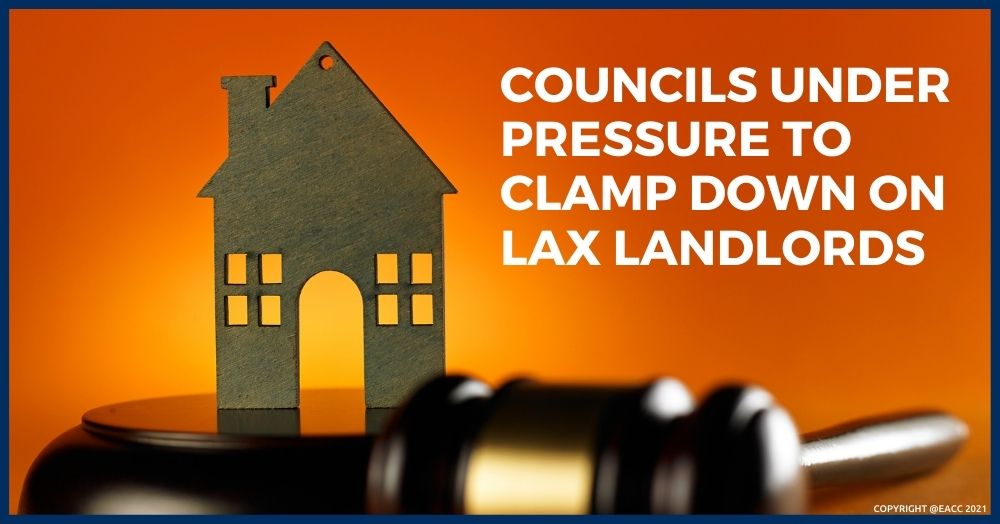Councils Under Pressure to Clamp Down on Lax Landlords
In this three-minute read, we look at the growing calls for tougher action against rogue landlords.
Landlords who struggle with all the rules and regulations associated with renting out a property – be warned.
Councils are coming under increasing pressure to throw the book at landlords who flout the law.
Even if you’ve gotten away with a ‘near enough is good enough’ approach so far, winging it isn’t a sustainable long-term strategy.
Calls for a get-tough approach
The demand for stricter enforcement is coming from two sides: tenants’ rights groups (as you might expect) and the private rental sector itself.
The National Residential Landlords Association (NRLA) and Propertymark, which represents property agents, argue that unscrupulous landlords tarnish the industry’s image and make tenants’ lives hell.
They have both recently called on councils to enforce the laws that relate to the private rental sector with greater zeal. (Propertymark is also pressing for councils to receive more cash for enforcement operations.)
But I’m not a rogue landlord
Now we get to the philosophical part. What is a rogue landlord? Is it a cigar-sucking Fagin-like character who fleeces the most vulnerable by renting out rat-infested, unsafe dumps?
Or is it a landlord who means well enough but doesn’t have the time or inclination to get it right all the time?
Quite frankly, it doesn’t matter. Every landlord who flouts the rules will have an excuse; maybe they’re time-poor, busy at work, or think some of the rules are silly, so don’t follow them.
None of these excuses will get you off the hook in court – especially if a tenant is injured or killed because you didn’t do the right safety checks or fell behind on maintenance.
Being a good landlord makes good business sense
Moral arguments aside, sticking to the rules makes good financial sense. Here’s why:
- Tenants are more aware of their rights than ever and are willing to defend them. A lax attitude towards deposits, inventories, or paperwork could leave you exposed – and out of pocket – in a dispute.
- If there’s a fire, flood, or accident at your property, your insurance could be ruled invalid if you didn’t follow the law.
- Tenants are more likely to stay in a property if they know it’s safe and their concerns will be listened to. This will cut your tenant selection and reference checking costs.
Get a letting agent on the job
You don’t have to do it all yourself; an experienced letting agent can help you.
Cover your back by getting a professional who knows what they’re doing to take the burden off your shoulders.
For more information about our property management services, get in touch with us here at Hi Residential.





